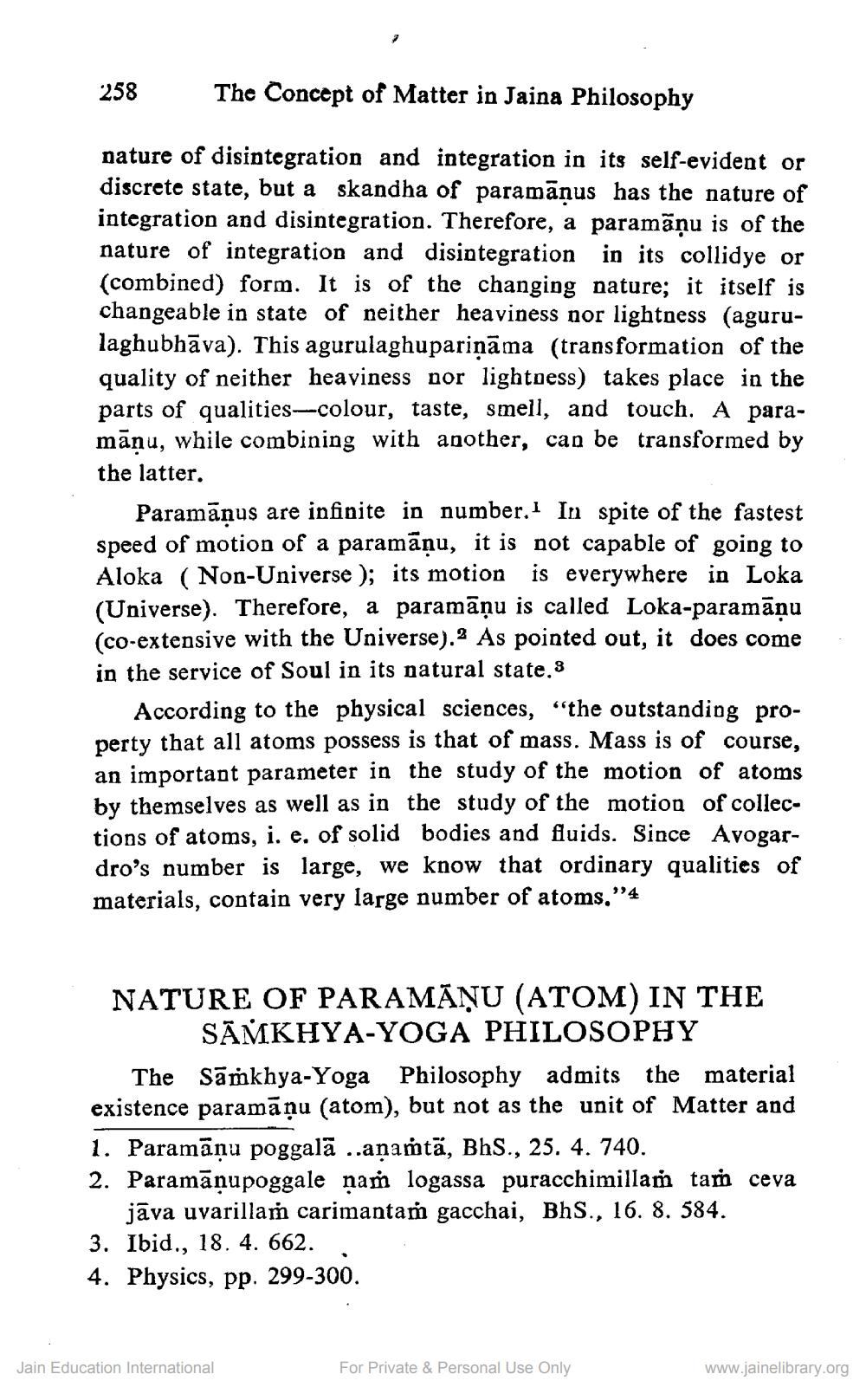________________
258
The Concept of Matter in Jaina Philosophy
nature of disintegration and integration in its self-evident or discrete state, but a skandha of paramāņus has the nature of integration and disintegration. Therefore, a paramāņu is of the nature of integration and disintegration in its collidye or (combined) form. It is of the changing nature; it itself is changeable in state of neither heaviness nor lightness (agurulaghubhāva). This agurulaghupariņāma (transformation of the quality of neither heaviness nor lightness) takes place in the parts of qualities-colour, taste, smell, and touch. A paramāņu, while combining with another, can be transformed by the latter.
Paramānus are infinite in number. In spite of the fastest speed of motion of a paramāņu, it is not capable of going to Aloka ( Non-Universe ); its motion is everywhere in Loka (Universe). Therefore, a paramāņu is called Loka-paramāņu (co-extensive with the Universe).” As pointed out, it does come in the service of Soul in its natural state.
According to the physical sciences, “the outstanding property that all atoms possess is that of mass. Mass is of course, an important parameter in the study of the motion of atoms by themselves as well as in the study of the motion of collections of atoms, i. e, of solid bodies and fluids. Since Avogardro's number is large, we know that ordinary qualities of materials, contain very large number of atoms."4
NATURE OF PARAMĀŅU (ATOM) IN THE
SĀMKHYA-YOGA PHILOSOPHY The Sāṁkhya-Yoga Philosophy admits the material existence paramāņu (atom), but not as the unit of Matter and 1. Paramāņu poggalā ..anaṁtä, BhS., 25. 4. 740. 2. Paramāņupoggale na logassa puracchimillam tam ceva
jāva uvarillaṁ carimantaṁ gacchai, Bhs., 16. 8. 584. 3. Ibid., 18. 4. 662. 4. Physics, pp. 299-300.
Jain Education International
For Private & Personal Use Only
www.jainelibrary.org




